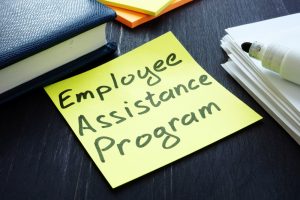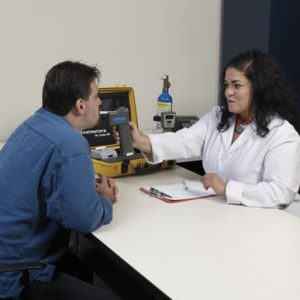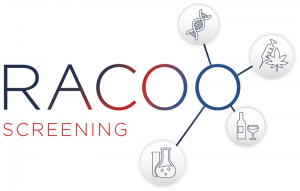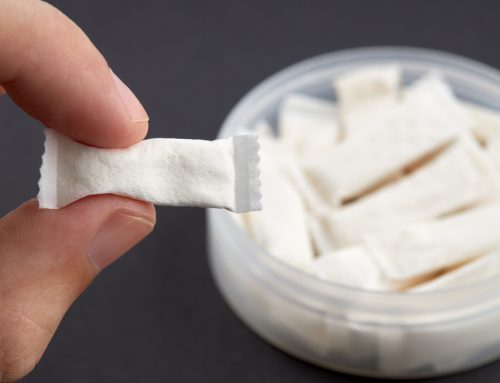
In today’s fast-paced work environment, it’s essential for employers to be vigilant about the well-being of their staff.
One of the challenges that HR managers and supervisors might face is addressing the issue of employees working under the influence of alcohol.
Recognising the signs early can make a significant difference, both for job performance, the individual concerned and the wider team.
In this article, we’ll cover:
- Is drinking at work illegal?
- What are the potential signs of an employee alcohol problem?
- What to do if you suspect someone is drinking alcohol at work?
- Employee drinking FAQs
Is drinking at work illegal?
In the UK, there’s no blanket law against alcohol at work.
Specific sectors like driving and machinery operation fall under the Transport and Works Act 1992 or the Road Traffic Act 1988, prohibiting alcoholism in the workplace.
Depending on your company’s health and safety policy, culture and sector, your company may view in-work drinking as gross misconduct and as grounds for potential dismissal.
Given the impact of alcohol abuse on performance and behaviour, coupled with your duty of care to employees, it’s wise for your company to establish a clear alcohol policy. This ensures safety and deters misuse.
What are the potential signs of an employee alcohol problem?
Understanding the signs of an alcohol problem can be the first step in offering support and ensuring a safe working environment. These signs can manifest in various ways, both in the workplace and in an individual’s personal life.
What should the company do if it recognises these signs in an employee?
The company should approach the employee privately, offer support, consider professional counselling, and ensure a safe working environment for all.
What should an employee do if they recognise these signs in an employee?
Employees should approach their HR department or supervisor confidentially, expressing their concerns without making accusations, ensuring the matter is handled sensitively.
How can the company communicate these signs to their staff?
The company can hold regular awareness workshops, distribute informational leaflets, or use internal communication channels to educate staff about the signs of alcohol misuse.

What to do if you suspect someone is drinking alcohol at work?
Below are the following steps your company could take when you suspect an employee is drinking at work.
Always remember, a compassionate and understanding approach, especially when personal challenges are involved, can be more impactful than punitive actions.
STEP 1
Define your company policy

Define your company policy
Establish a transparent company policy on alcohol and drug use, detailing the company’s perspective on in-office drinking, potential repercussions, and available employee support.
The five primary questions your workplace alcohol policy should answer are:
What defines a “violation”?
Clearly define what actions or behaviours are considered breaches of the alcohol policy. Does the policy strictly prohibit any alcohol consumption during work hours, or are there exceptions, such as company events?
How will you detect an employee drinking alcohol?
Outline the methods the company might employ to identify violations. Will there be random alcohol tests? If so, how frequently and under what circumstances?
What are the consequences?
Specify the disciplinary actions that will be taken if an employee is found violating the policy. This could range from verbal warnings to termination. Are there progressive disciplinary steps?
What support is available?
Detail the resources and support systems in place for employees who might be struggling with alcohol-related issues. Are there counselling services, Employee Assistance Programmes (EAP), or rehabilitation options available?
How do you make sure this policy is fair?
Describe the measures in place to ensure that all employees are treated fairly and without discrimination. How will the company safeguard the privacy and dignity of its employees during the testing and disciplinary processes?
STEP 2
Collect evidence of drinking at work

Collect evidence of drinking at work
Prior to addressing the employee, collate proof of the supposed alcohol consumption, such as witness testimonies or CCTV recordings.
WITNESSESS TESTIMONY
CCTV
PHYSICAL EVIDENCE
STEP 3
Meet with the employee

Meet with the employee
Meet in confidence with the concerned employee. Approach with empathy, allowing them to share their perspective. Personal challenges or stress might be influencing their actions.
Choose the right setting
Opt for a private and neutral space, away from the hustle and bustle of the workplace. This ensures the conversation remains confidential and allows the employee to feel at ease, promoting open dialogue.
Be empathetic
Before the conversation, familiarise yourself with any relevant facts or observations. However, when you engage, lead with understanding and compassion. Remember, it’s not an interrogation but a supportive discussion.
Listen to what your employee has to say
Give the employee your full attention. Avoid interrupting and encourage them to share their feelings and concerns. By actively listening, you’re showing respect and valuing their perspective.
Avoid making assumptions
While it’s essential to address the issue at hand, refrain from jumping to conclusions. An employee drinking at work may not be a sign of a wider problem with alcohol. Allow the employee to provide context. They might simply have had a lapse in judgement or be facing challenges outside of work that are influencing their behaviour.
STEP 4
Offer the employee support

Offer the employee support
Should the employee acknowledge an alcohol issue, extend support avenues like occupational health referrals, counselling, or an Employee Assistance Program (EAP). Encourage the employee to seek guidance or a treatment program themselves.

STEP 5
Record every step

Record every step
Chronicle all interactions, discussions, and measures taken, vital for potential future disciplinary actions.
STEP 6
Consider alcohol testing

Consider alcohol testing
With employee consent and if aligned with company policy, ponder over alcohol and drug testing, ensuring fairness and legal compliance.
Random Testing: Unplanned, surprise tests to deter regular misuse and ensures consistent safety.
Scheduled Testing: Regular, predetermined testing dates to maintain routine checks and reinforce company policy.
Post-Incident Testing: Testing after workplace accidents to discover if alcohol was a factor.
Reasonable Suspicion For-cause Testing: Based on observed behaviour, this addresses immediate concerns and ensures safety.
Return-to-Work Testing: Testing post-rehabilitation to confirm recovery and ensure workplace readiness.
At Racoo, we offer all of the above testing types, helping you to prioritise employee well-being and workplace safety.
STEP 7
Consider disciplinary measures

Consider disciplinary measures
Persisting issues or policy breaches might necessitate disciplinary actions, from warnings to potential termination, in line with company guidelines and UK employment regulations.
STEP 8
Assess workplace culture

Assess workplace culture
Reflect on workplace dynamics that might be fuelling the issue, such as regular after-hours or a prevailing drinking culture.
STEP 9
Consider training


Consider training
Equip managers with training to discern and manage alcohol-related challenges. Amplify awareness about in-work alcohol consumption risks and available support.
STEP 11
Consider legal advice

Consider legal advice
For any ambiguities in addressing workplace drinking, seek legal counsel to remain within UK employment legalities.
Employee drinking FAQs
Address with discretion and empathy. Prioritise safety, follow company policy, and offer support where needed.
In the UK, alcohol dependence can be considered a disability, warranting understanding and reasonable adjustments.
Drinking at work can be deemed gross misconduct, depending on company policy and the role’s nature.
Not inherently illegal, but specific roles and industries have strict regulations against it.
Concerned about an employee’s behaviour?
Act now for peace of mind
Ensure a safer workplace with Racoo’s trusted drug and alcohol testing services.






